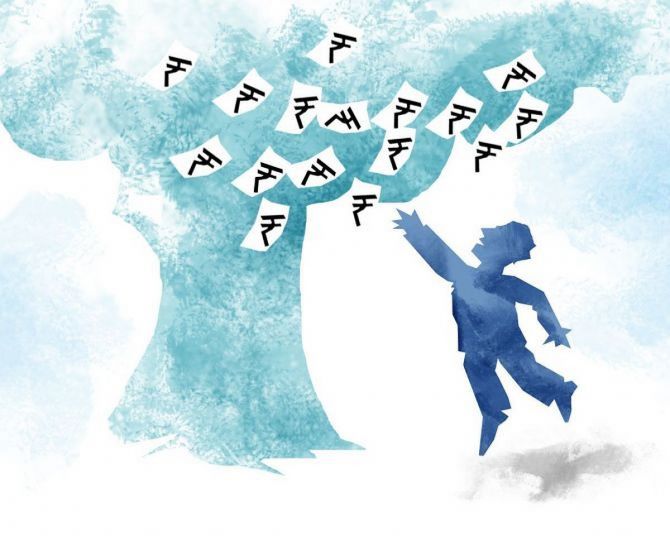 | « Back to article | Print this article |
The drop was amplified by exchange rate depreciation: at fixed exchange rates, the loss would have been 2.1%.

Covid-19 pandemic that brought life to a near standstill in 2020 has left Indian adults poorer by 6.1 per cent in 2020, suggests the Credit Suisse Global Wealth Report 2021.
Wealth per Indian adult in 2020, according to the report, dropped to $14,252 by 2020-end compared to pre-pandemic levels.
On a cumulative basis, Credit Suisse estimates the drop in the wealth of Indian adults at $594 billion.
“In real terms, the average wealth level in India in 2020 was at a level seen in the United States 70 years ago.
"In the next five years, wealth per Indian adult will surge past $20,000, a rise of over 40 per cent," said Anthony Shorrocks, economist and the author of the Global Wealth Report 2021 at Credit Suisse.
The drop in the wealth of Indian adults in 2020, according to Credit Suisse, was amplified by exchange rate depreciation: at fixed exchange rates, the loss would have been 2.1 per cent.
Latin America was the worst performing region, with total wealth dropping by 11.4 per cent or $1.2 trillion.
The Global Wealth Report 2021 has been compiled from data on the wealth holdings of 5.2 billion adults across 200 countries.
“Wealth inequality in India has risen at a slower pace than in China, but was already very high in 2000.
"The Gini coefficient – an index used to measure wealth inequality – increased from 74.7 in 2000 to 82.0 in 2019, and reached 82.3 at the end of 2020.
"The wealth share of the top 1 per cent went up from 33.5 per cent in 2000 to 39.5 per cent in 2019, and rose further to 40.5 per cent by the end of 2020,” the Credit Suisse report said.
World view
Aggregate global wealth, according to Credit Suisse estimates, rose by $28.7 trillion to reach $418.3 trillion at the end of 2020 despite the pandemic.
“In terms of current US dollars, total wealth grew by 7.4 per cent and wealth per adult was up 6.0 per cent.
"However, widespread depreciation of the US dollar accounted for 3.3 percentage points of the growth.
"If exchange rates had remained the same as in 2019, total wealth would have grown by 4.1 per cent and wealth per adult by 2.7 per cent,” Credit Suisse said.
Developed regions were better off in 2020.
Total wealth rose by $12.4 trillion in North America and by $9.2 trillion in Europe, the report said.
Total debt, on the other hand, rose markedly in China and Europe, but declined in Africa and in Latin America, even after allowance was made for exchange rate depreciation.
“These two regions accounted for the bulk of the wealth gains in 2020, with China adding another $4.2 trillion and the Asia-Pacific region.
"Total debts increased by 7.5 per cent and would likely have increased much more if households had not been obliged to save more by the constraints on spending," Credit Suisse said.
Going ahead, Global wealth, as per Credit Suisse estimates, is projected to rise by 39 per cent over the next five years, reaching $583 trillion by 2025.
Low and middle-income countries are responsible for 42 per cent of the growth, although they account for just 33 per cent of current wealth.
“Wealth per adult is projected to increase by 31 per cent, passing the mark of $100,000.
"Unadjusted for inflation, the number of millionaires will also grow markedly over the next five years reaching 84 million, while the number of ultra-high networth individuals (UHNWIs) should reach 344,000,” Credit Suisse said.